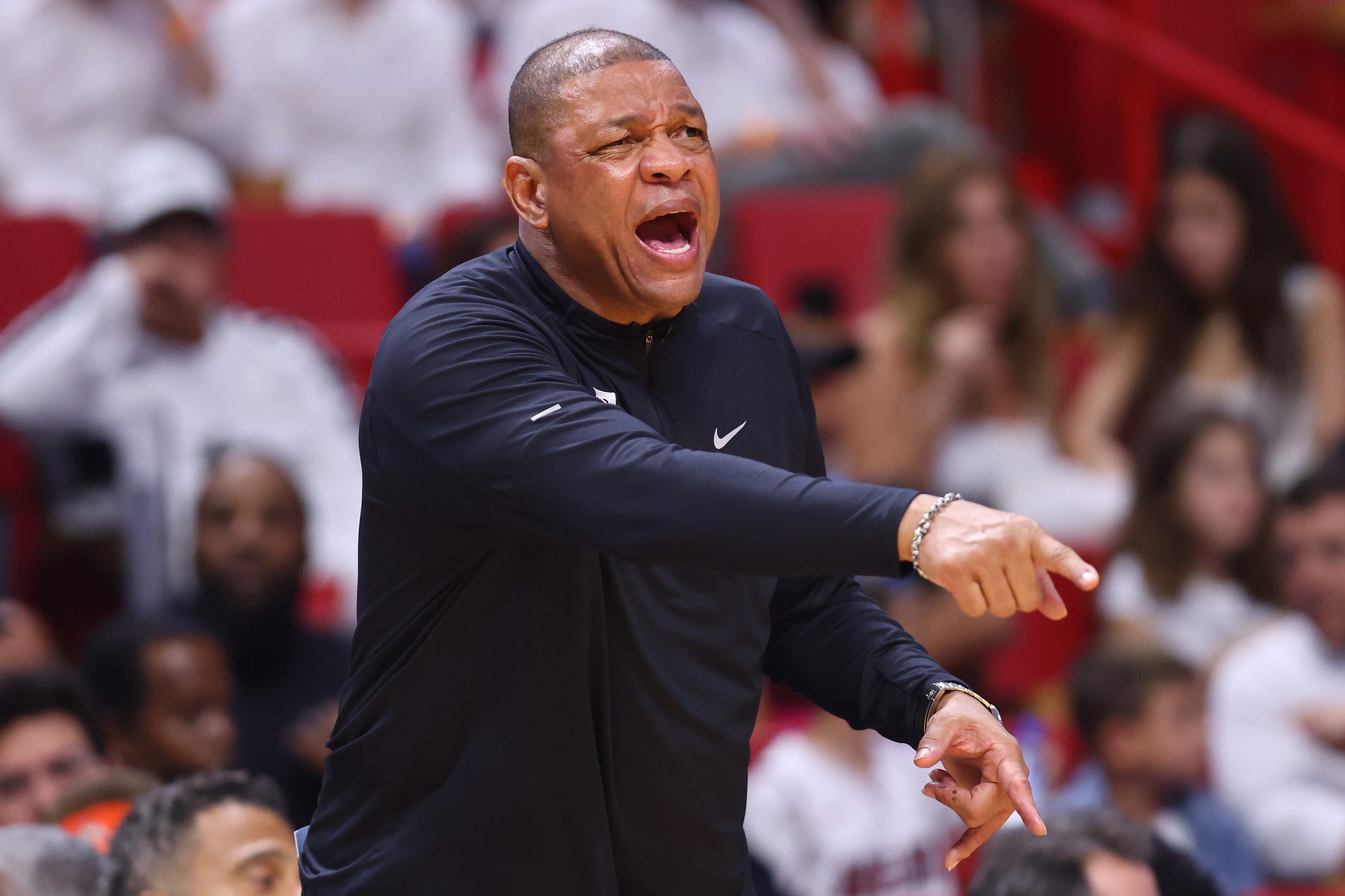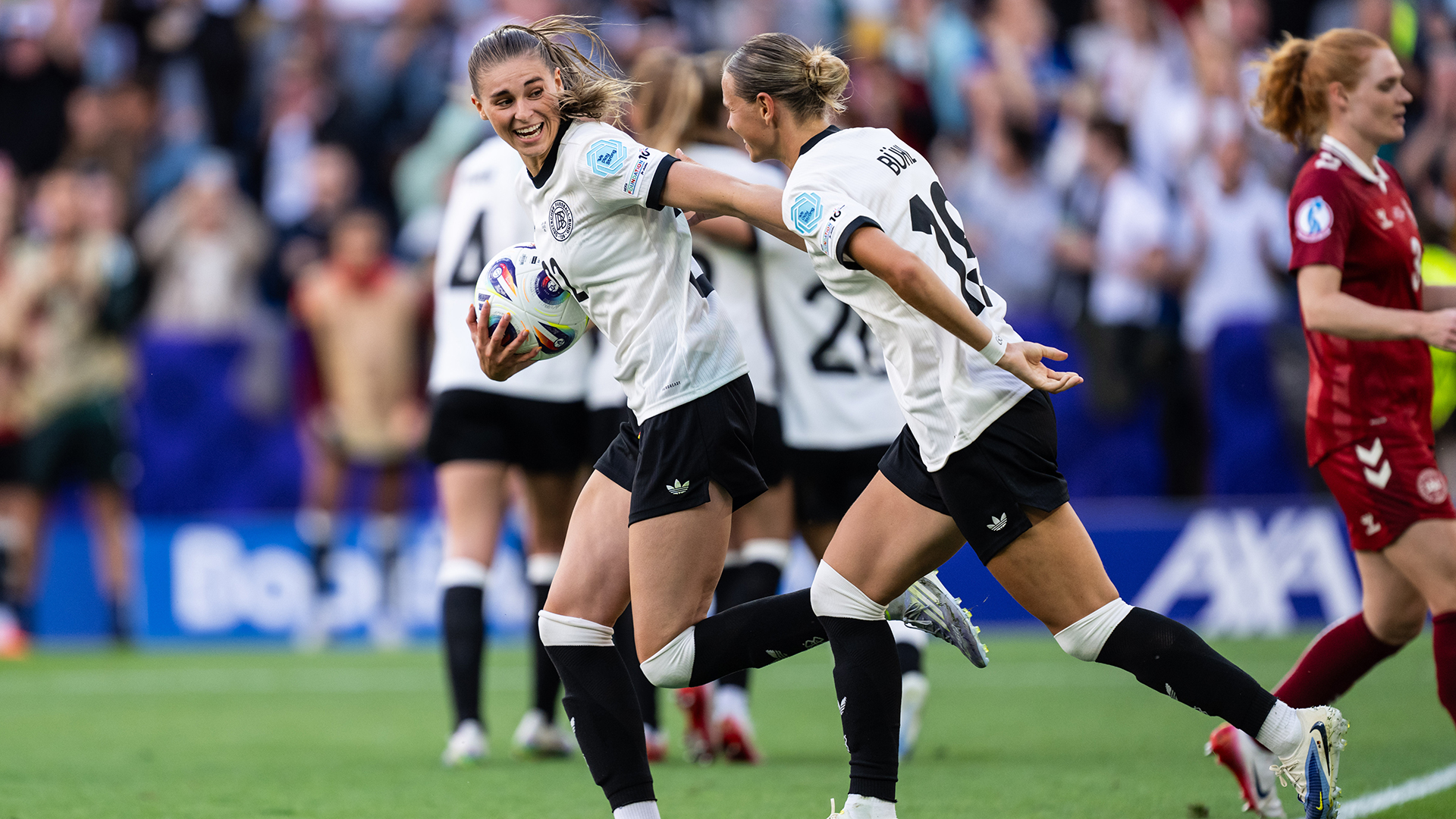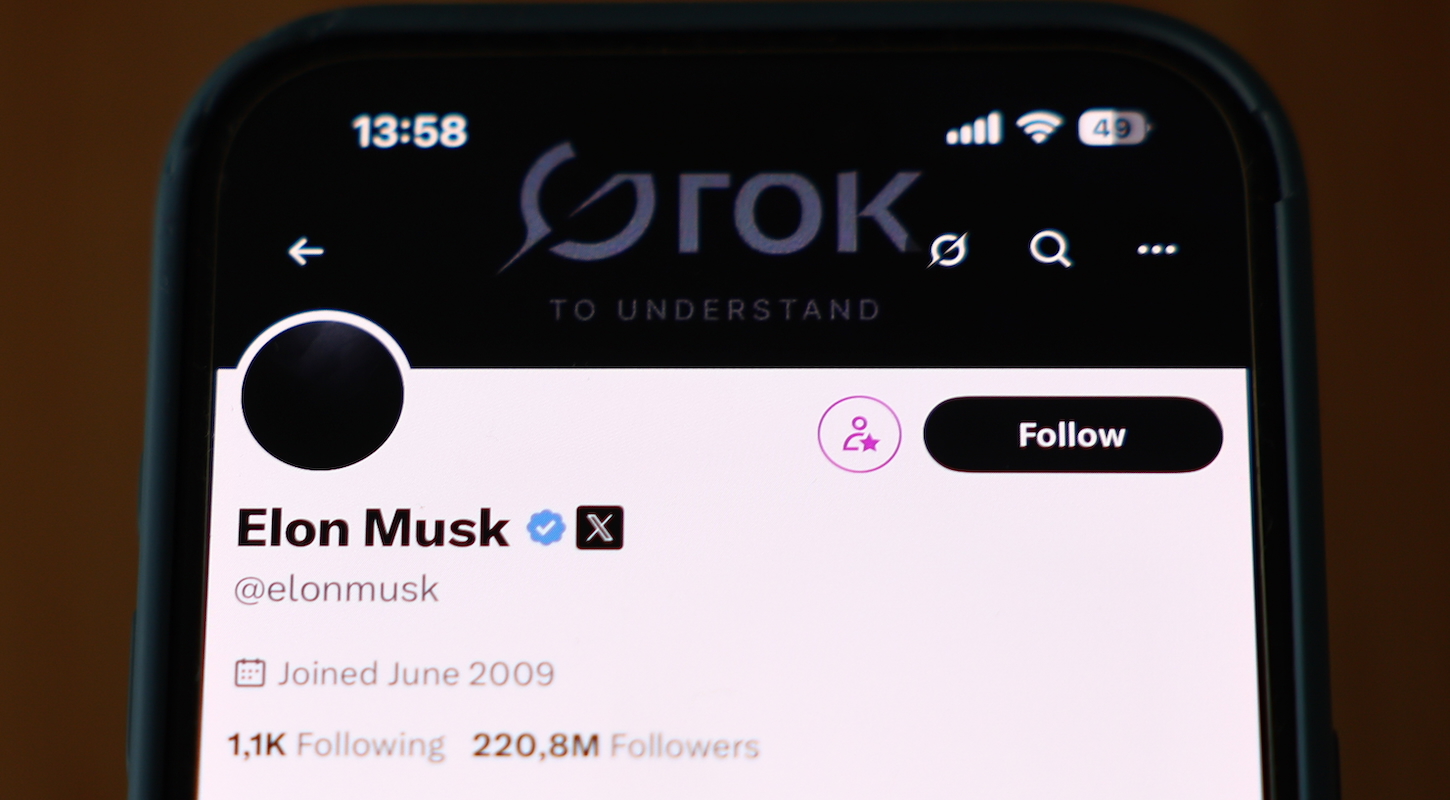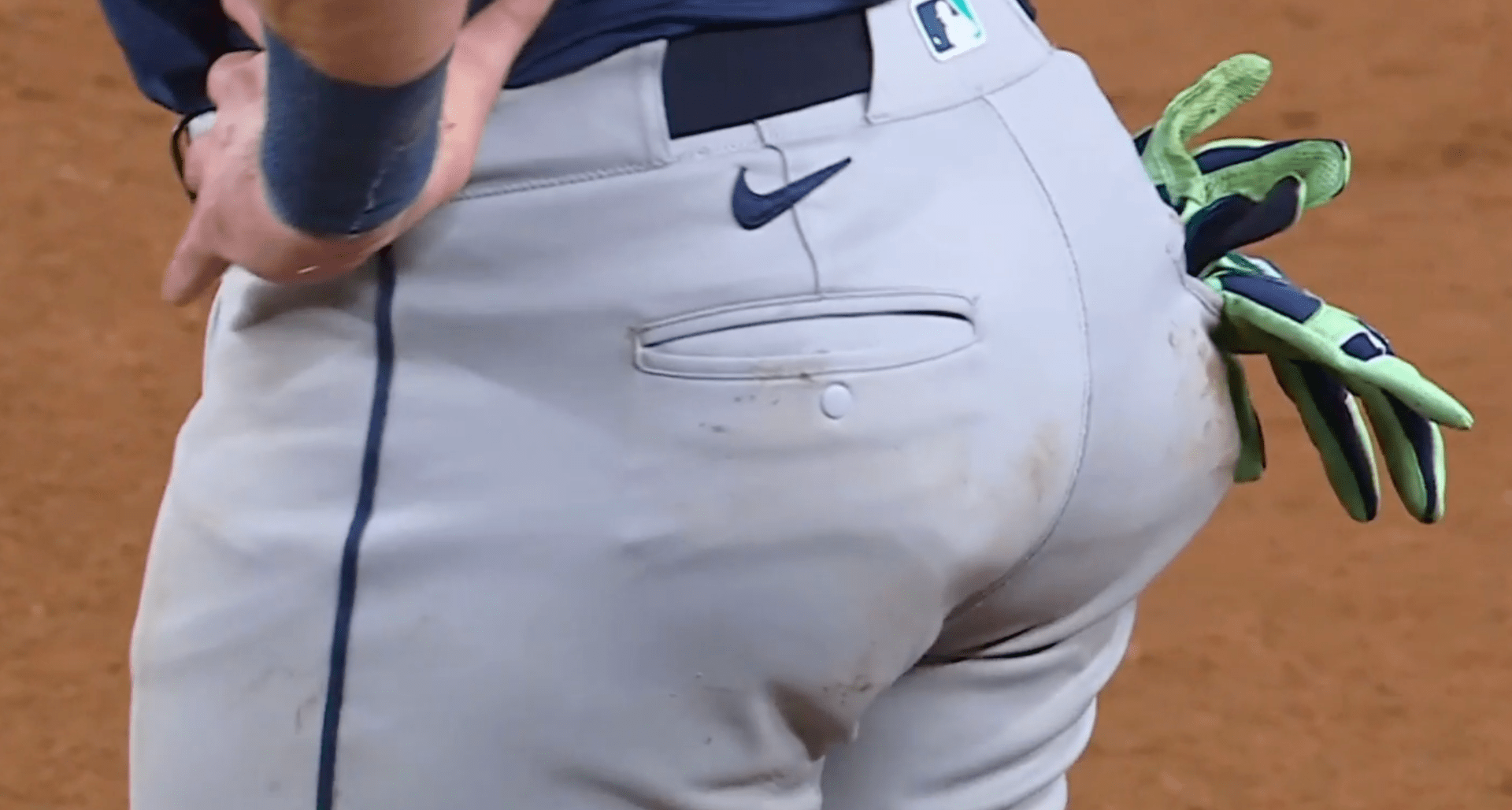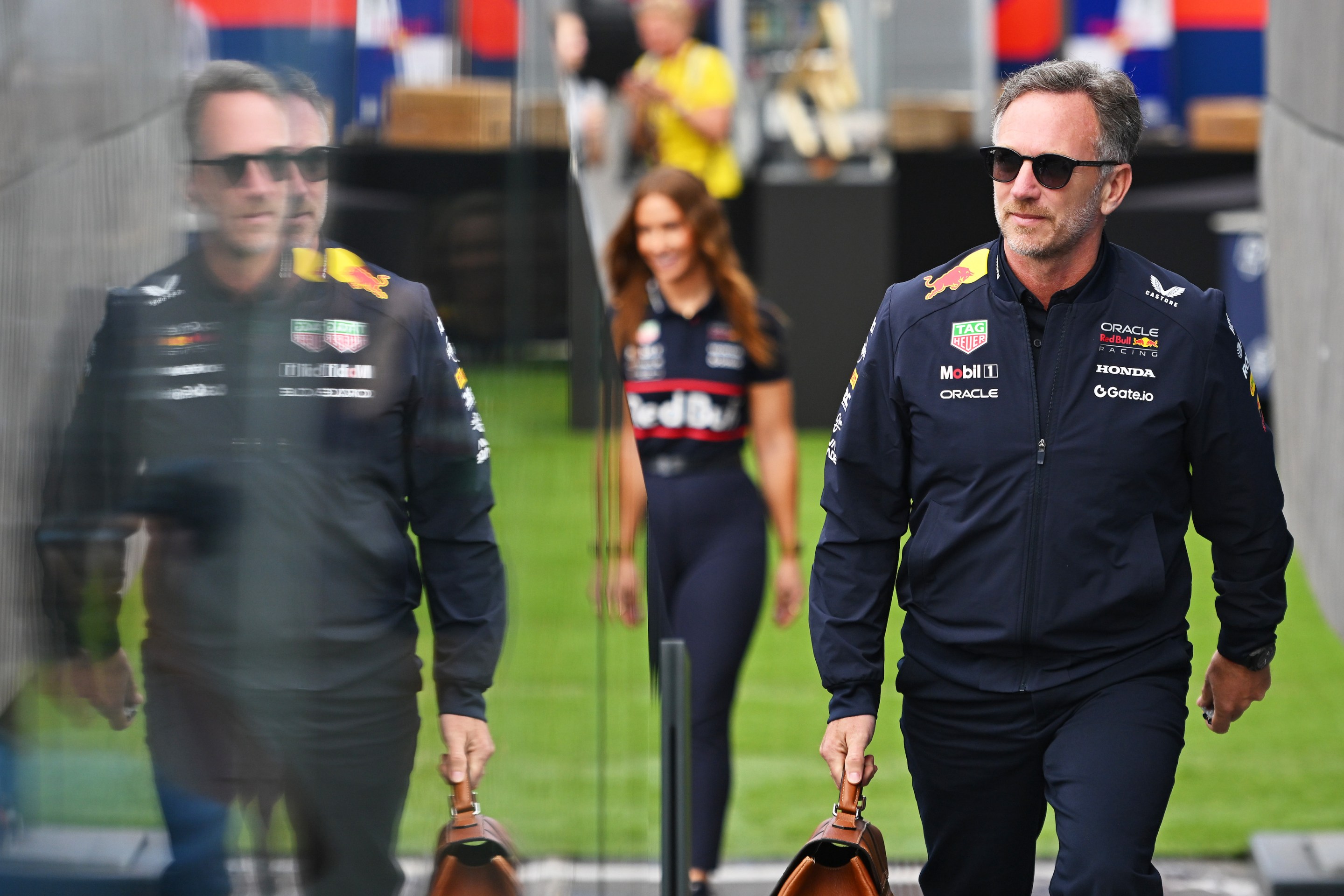Philadelphia 76ers head coach Doc Rivers made the decision to put veteran center DeAndre Jordan in the starting lineup for Game 1 of his team's second-round series against the top seed Miami Heat. With Joel Embiid shelved until Game 3 at the very earliest, Rivers is in a pretty bad spot: Down his most important player but determined to keep a traditional center in his starting five, Rivers has at his disposal old man Jordan and young man Paul Reed, two big guys who can do precisely zero basketball things even half as well as the man they're replacing. Taking on the Miami Heat with either of these guys in the starting lineup would be a humongous challenge.
Rivers went with 33-year-old Jordan, who played just 16 regular-season games with the 76ers after they signed him on March 3 following his release from the Los Angeles Lakers, for whom he sucked mondo ass. Rivers said he and his coaches and "our guys" felt that a "big roller" was the best option for Philadelphia's offense. Reed and Jordan are both rollers, but Rivers also felt that it would be a major blow if Reed, who averaged nearly seven fouls per 36 minutes in the regular season, found himself in foul trouble. It's a valid concern, as Reed committed five fouls in 13 minutes Monday night. If Embiid's unavailable and Reed can't stay on the floor, the choices get real stupid real fast. After Jordan, the next most center-like players on the roster are Georges Niang, who is the size of Jimmy Butler, or Paul Millsap, who is also Jimmy Butler-sized, who has played even fewer games with the 76ers (nine), who is even older than Jordan, and who is quite possibly the most washed-up player not named Udonis Haslem on any roster in the NBA.
This is not meant as a defense of Rivers's decision to start Jordan, but is merely to emphasize that the Sixers are in big trouble without Embiid. Jordan obviously cannot be the stopgap, even for very short stretches, because he is no longer capable of surviving on an NBA floor in a role of any size. Per Cleaning The Glass, which filters out garbage-time performance, Jordan has been a negative during his minutes for most of the last five years of his career. He was already falling off, big-time, before he left the Clippers in 2018. He was only intermittently useful for the Mavericks and Knicks, and his job with the Nets was basically a favor engineered by Brooklyn's marquee players. He was catastrophically bad in Los Angeles, and if anything was even worse during his limited regular-season run with the Sixers. The drop from Embiid to Jordan is roughly equivalent to the drop from the roof of my house all the way through the planet and then out the other side, somewhere in China or Australia, which incidentally is more-or-less the part of the globe where Jordan could still credibly draw a paycheck for playing basketball.
This will come as no great surprise to anyone who is not named Doc Rivers, but Jordan was horrendous Monday night. That he is a semi-viable pick-and-roll partner cannot come close to offsetting the problems that are created by all that he cannot do. He can't shoot or finish from anywhere outside of the restricted arc. He can't throw any but the most rudimentary of passes, especially not with so little experience in Philadelphia's offense. He can't handle the ball out on the floor. These deficiencies in Jordan's game have always been there, including when he was an All-NBA performer, but the real problem, at this late stage of his career, is that he can no longer defend at all anywhere except directly in front of the basket. The Heat are in constant motion and virtually all of their main guys are capable of exploiting a Jordan-sized mismatch in one way or another, whether by shooting an open three or blowing past a lumbering closeout or shifting into a quick handoff to keep a scrambling defense stuck in the blender. At no point will they permit Jordan to camp out on the low block and simply deter shots around the rim.
The early part of the first quarter was nightmarish. The Sixers were outscored by 12 points during Jordan's four minutes of run, with a defensive rating of 180. Rivers yanked Jordan early and had the good sense to keep him pinned to the bench the rest of the half, and Philadelphia scraped back and took a one-point lead into halftime. Jordan had his only even halfway decent stretch of the game early in the second half, but soon the Heat were dragging him back into the action, and by the fourth quarter he was once again just a big glaring minus, as the Heat took control of the game and then vanished over the horizon.
Who is DeAndre Jordan guarding pic.twitter.com/Q9knpnchMt
— Tom Haberstroh (@tomhaberstroh) May 3, 2022
So the experiment failed. Lesson learned! Clearly the thing that an experienced head coach like Doc Rivers will do is use the information gained in Game 1 to make adjustments to his rotation ahead of Game 2. Obviously when your team is outscored by a rate of more than 70 points per 100 possessions when a particular guy is on the floor, what you do is you stop using that guy, and certainly you stop using him in instances where he is most likely to face the opposition's best players. Right?
Doc Rivers on DeAndre Jordan: "We’re gonna keep starting him whether you like it or not. That’s what we’re gonna do because our guys believe in him." pic.twitter.com/cg36lJpSZK
— HoopsHype (@hoopshype) May 3, 2022
Doc says "to a man" the players in Philadelphia's locker room believe in Jordan, and therefore he is committed to running Jordan out there in the starting lineup for Game 2, "whether you like it or not." Perhaps Doc should consider rephrasing the question. Instead of asking his players whether they support their teammate, he should ask them how they feel about opening up Game 2 in a 10-point hole. Seems safe to bet he will get an entirely different response.
